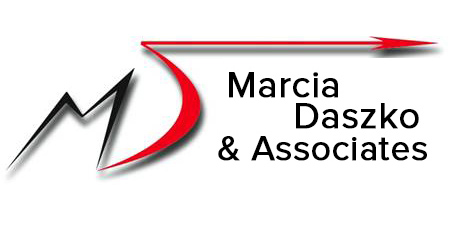Marcia’s Leadership Q&A
/Q. What traits do you think most great leaders have?
A. There are hundreds of traits that great leaders may have. But the essential focus for leadership is not really about attributes. Thinking about leadership traits is a static approach. Instead, think about people continually developing their leadership as a robust and dynamic process. Leaders are creative, questioning, and continually improving their thinking and their actions.
Define some characteristics of leadership and look at how those can be improved over time. Great leaders have a confidante, a trusted advisor that continually teaches, challenges, and encourages them in a safe environment, yet beyond their comfort zone.
Q. What kind of duties and responsibilities are best left solely in the hands of a leader and not delegated to a subordinate?
A. Here are a few essential duties of a great leader that they cannot delegate. Leaders are accountable for the system (organization) and they can not hold individuals IN the system accountable for the results of the system. This is a huge differentiator that many leaders don’t get—the difference between accountability and responsibility. Leaders are accountable for the results because only they can change the System. They need to work ON the System to improve or transform it if they don’t like the various outputs and measures. Individuals and teams are responsible to contribute to improving the system (and processes) with management.
Leaders also cannot delegate the organization’s transformation. The CEO/President/Owner leads the transformation and cannot delegate that. CEOs of Ford, GM, Xerox, etc. have owned their own transformation—it’s how they saved and turned around their organizations. Transformation is not easy. The thinking is different and difficult, but also essential and satisfying work. Leaders create the culture through showing their leadership and communicating their values, priorities, and focus. Leaders also create the environment where people are self-motivated; that’s where the power is. Leaders don’t motivate people (sometimes they de-motivate them and let “best practices” and management fads creep into their organization. Those can cause internal competition and dysfunctional workplaces.). Leaders develop and invest in their people and grow the business.
Q. What’s the best way to cultivate a sense of self-awareness in myself as a leader?
A. As we’ve heard many times, “we don’t know what we don’t know.” It starts with what we believe. Many people believe that when they’ve graduated from high school, trade school, or college, they’ve gotten the diploma and they’re “done” with the bulk of their learning. But their journey of learning is just beginning. They embark into personal lives and careers—and maybe multiple careers over decades and meet leaders (good and bad) who become mentors. Deep learning begins when people want to explore who they are, what they want, and where they’re going. Leadership develops when they begin to ask more questions. Ask questions about choices, direction, and how they can contribute. How will they be authentic in words and actions?
Developing leadership (naturally what each person has within themselves) means continual learning, studying, having meaningful conversations, and most importantly asking questions and challenging the status quo. Great leaders don’t blame, judge, and make excuses. They are creative, search for solving problems with others, and see possibilities and opportunities. People have busy days, productive days, days of struggle, and days to reflect. To become more self-aware, listen more, read more, question more, experiment more, and make more of a difference. In doing these things, you learn more about yourself—and where you need to push out of your own comfort zone to grow.
Send your leadership and team questions to Marcia Daszko at md@mdaszko.com. She works with Boards, C-suite leaders and teams to pivot, innovate, accelerate and achieve bold results never before imagined. A provocative keynote & virtual speaker, strategic Deming advisor/consultant for 25+ years, she is the bestselling author of the book “Pivot Disrupt Transform.” www.mdaszko.com








